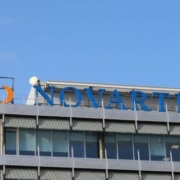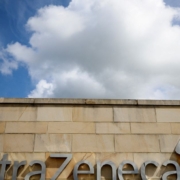Shares of MEI Pharma Inc. plunged more than 60% in trading on March 25 after the company announced that additional clinical research will be needed in order for the its phosphatidylinositol-3-kinase (PI3K) inhibitor zandelisib to be considered for regulatory approval.
A new study from France counters conventional understandings regarding artificial sweeteners and their relationship with cancer.
Roche partnered with Bristol Myers Squibb to utilize two digital pathology platforms that would advance research into treatment options for patients diagnosed to have solid tumors.
In Expected Decision, FDA Rejects Lilly’s Sintilimab in NSCLC
Alliances, Biologics License Application (BLA), Business, Checkpoint Inhibitors, Clinical Trials, Complete Response Letter, EGFR tyrosine kinase inhibitors (TKI), Eli Lilly, FDA, Hepatocellular Carcinoma, Non-Squamous Non-Small Cell Lung Cancer (NSCLC), PD-1 Inhibitors, R&D, TherapeuticsThe U.S. Food and Drug Administration rejected Eli Lilly’s Biologics License Application, issuing a Complete Response Letter for the company’s PD-1 checkpoint inhibitor sintilimab.
Novartis’ proposed drug for adults diagnosed with a certain type of advanced prostate cancer was given the green light for commercialization.
AstraZeneca said on March 24 the company’s drug Imfinzi, along with chemoradiotherapy, failed to achieve the main goal of improving survival in patients with locally advanced cervical cancer without the disease worsening.
The U.S. Food and Drug Administration approved Merck’s anti-PD-1 therapy Keytruda as a single agent for the treatment of patients with advanced endometrial carcinoma that is microsatellite instability-high (MSI-H) or mismatch repair deficient (dMMR), as determined by an FDA-approved test, who have disease progression following prior systemic therapy in any setting and are not candidates for curative surgery or radiation.
Hot off the heels of the company’s milestone approval for the unique checkpoint inhibitor Opdualag, Bristol Myers Squibb forged an oncology drug discovery and development deal valued at more than $1 billion with Volastra Therapeutics.
Bristol Myers Squibb Co., in a lawsuit made public on March 17, said AstraZeneca’s cancer treatment Imfinzi violates patents related to the company’s blockbuster cancer drug Opdivo.
FDA approves BMS’ first-in-class LAG-3-blocking antibody combination for advanced melanoma
Approvals, Bristol Myers Squibb, Checkpoint Inhibitors, Clinical Trial Endpoints, Clinical Trials, FDA, First-In-Class, LAG-3 protein, Metastatic Melanoma, PD-1/PD-L1 inhibitors, Primary Endpoints, Progression-Free Survival (PFS), R&DBristol Myers Squibb’s Opdualag – a new, first-in-class, fixed-dose combination of nivolumab and relatlimab, administered as a single intravenous infusion – was approved by the U.S. Food and Drug Administration for the treatment of adult and pediatric patients 12 years of age or older with unresectable or metastatic melanoma.










